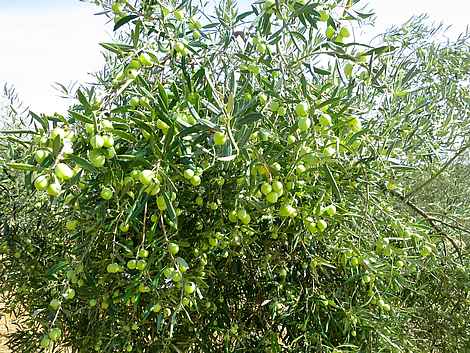Summary
The production of olive oil is an agricultural sector of great importance. The olive sector is a very important sector for several countries in the world, particularly for Tunisia. Moreover, the impacts of olive oil production and extraction on economic, environmental and social issues are considerable. The main objective of this work is to propose a better structuring of the Tunisian olive oil supply chain in a sustainable development perspective. The proposed approach consists in applying a technique of preference order by similarity with the ideal solution (TOPSIS) as a multicriteria approach. The proposed approach is applied in two applications. In the first application, the objective is to compare five possible scenarios for the agricultural phase of olive production. In the second application, the objective is to compare three possible scenarios for the olive oil processing phase. The main results of this research are as follows:
The best scenario for the agricultural phase is the intensive organic system, which is based on biodynamic olive cultivation.
The best scenario for the processing phase (oil extraction) is the two-phase continuous extraction system. Therefore, the most efficient way for the by-product processing phase is the use of wet pomace for the preparation of biodynamic compost.
Introduction
This research is based on two major findings. First, the olive oil industry is an important productive and economic sector in the Mediterranean countries. The associated production process is characterized by several different practices and techniques for the agricultural production of olives and for their processing into olive oil. However, despite the economic importance of this food product in several countries and the social impacts caused by the olive oil industry, in particular the high added value and the creation of jobs, this industry entails various economic, environmental and social impacts, in terms of resource depletion, atmospheric emissions, waste generation, etc. These economic, social and environmental impacts vary mainly due to the practices and techniques used in olive cultivation and oil extraction. As a result The goal of sustainable development is to balance economic, environmental and social needs, and thus prosperity for the present and future generations. Sustainable development is a long-term, integrated approach to developing and achieving a healthy society by jointly addressing economic, environmental and social criteria, while avoiding the over-consumption of essential natural resources. Therefore, many studies have proposed and developed multi-criteria decision analysis (MCDA) methods to study sustainable development in various fields and disciplines.
Objective of the study
The main objective of this research work is to create an olive oil supply chain in Tunisia that ensures a reasonable use of natural resources, protects the global ecosystem and generates economic prosperity and balanced social development. In this regard, the methods of cultivation of olive trees and production of olive oil, as well as the methods of managing the use of olive by-products must be considered in full respect of the environment, while ensuring economic profitability and social welfare, ie. i.e. moving towards a sustainable supply chain.
Conclusion
In this paper, a better organization of the olive oil chain in Tunisia is proposed in order to achieve the objectives of sustainability, and thus ensure a sustainable supply chain. The proposed configuration involves the biodynamic cultivation of olives followed by a two-phase continuous extraction system that produces an olive oil of very high quality and taste (rich in natural antioxidants, polyphenols, etc.) while preserving the environment and ensuring social welfare.
In fact, for the agricultural phase, biodynamic olive growing (the intensified organic scenario) is a method of agricultural production that has daily benefits, since it respects the environment and human health as well as the agricultural ecosystem. It does not use synthetic chemicals, preserves biodiversity, does not waste natural resources and generates healthy products for human well-being. Moreover, it ensures economic performance since it allows to obtain a better quality oil. For the transformation the problem of by-product processing is also very appropriately addressed. As proposed, the sustainable and economically viable management of by-products in the olive oil sector is a new challenge.
Authors:
Jellali A, Hachicha W, Alljuaid AM.
Journal: Sustainability 2021, 13, 722
original: Sustainable Configuration of the Tunisian Olive Oil Supply Chain Using Fuzzy Topsis-based Approach.
Original link:
https://www.mdpi.com/2071-1050/13/2/722/htm
